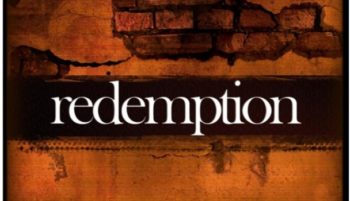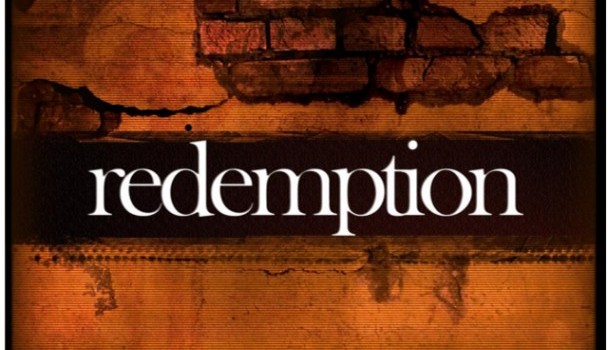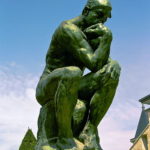Genuinely compelling villains, although always too few, exist in fair abundance. Much more rare is a compelling villain who charts a convincing and satisfying redemption arc. Rarest of all is a compelling villain who, at the end of his satisfying redemption arc, does not promptly die. It grows predictable and, occasionally, rather bleak. Why can’t a villain finish his redemption arc without finishing himself?
Practicality is one driving reason. A redeemed villain is an ex-villain, and where do you go from there? Once a villain gives up all the interesting plans that made him so necessary to the story – gives up world domination, or mad scientific experiments, or destroying people’s lives for his personal satisfaction – what does he do next? It would be easy to say that he becomes a hero. It would not be easy to do. Not everything that makes a good villain makes a good hero. We are entertained by the badness of villains, if it is done with elan: insouciant lies, frank selfishness, grandiose pomposity, Force-choking incompetent subordinates, etc.
But in the transition to heroism, even the most stylistic wickedness has to go. Worse, the villain’s role (so excellently played!) must be abandoned. And once all that is stripped away, what do you have left? You are in danger of  changing a superior villain into a merely adequate hero. Not all creators know what to do with a smashing villain who entirely leaves off villainy. The story grows, too, harder to tell. There is high drama and even clarity in the conversion of villain to hero. Life, on the other side of redemption, sinks to something quieter and more muddled. It is easier to write a redemptive death than a redeemed life. And if the redeemed villain dies with all dispatch, his career as a hero will be too short to be disappointing.
changing a superior villain into a merely adequate hero. Not all creators know what to do with a smashing villain who entirely leaves off villainy. The story grows, too, harder to tell. There is high drama and even clarity in the conversion of villain to hero. Life, on the other side of redemption, sinks to something quieter and more muddled. It is easier to write a redemptive death than a redeemed life. And if the redeemed villain dies with all dispatch, his career as a hero will be too short to be disappointing.
Aside from the creative challenge of an ex-villain, certain thematic and even philosophical ideas drive the villain’s redemptive death. Greater love has no one than this, that he lay down his life, and people believe this almost by instinct. Truly wonderful villains do truly terrible things. To do the best thing is a powerful culmination of the villain’s journey to heroism. In the case – and it usually is the case – that the villain has innocent blood on his hands, a heroic death is a kind of atonement. Steal life, give life. It satisfies justice. There are crimes that cry out for punishment. A change of heart does not buy impunity from every horrible thing done to other people.
In his self-sacrificial death, the redeemed villain pays his debt. That is why the redemption arc is so often completed with a heroic death. It is emotionally powerful, and satisfies a sense of rightness that is more felt than articulated. It is also the safest creative choice. If you don’t really know how to continue the villain or his story past the high point of redemption, you might as well stop there – and leave them wanting more.
But whatever excellent reasons exist for some redemption arcs to end in death, there is no reason that they all should. Occasionally – if for no other reason than to keep us guessing – creators should take up the challenge of an ex-villain who lives as a hero instead of dying as one. We grow fond of our compelling villains, even in their murderous phase. We cheer them on their journey to the light. We would like, after it all, to be able to keep them around. It’s tiresome to be compelled to end all such stories feeling sad. Every once in a while, it would be good to believe in grace enough to say that the villain, too, lives happily ever after.










































Interesting concept!
Personally… I never trust redemptive villain arcs. Always expect them to betray the hero and go back to their evil ways. Having the villain die is one way to “lock” the redemption in place.
But, as an author, I’m considering how to do a redemptive villain arc that actually sticks. So, this article is a good place to start thinking about the aspects of one!
(side note: I had a dream pre-“Rise of Skywalker” with Kylo Ren redeemed. He’d gone to seminary and was trying to make a career as a pastor, though struggling to a very bad reputation!)
My absolute favorite villain redemption (I won’t spoil which character) is in Ted Dekker and Tosca Lee’s Books of Mortals trilogy. It’s just so interesting what they do with this character! The person is terrible and gross and loathsome, does the worst thing in the series, disappears for a while… and comes back in a VERY unexpected way. Anyway, trying not to spoil it… but I LOVE it. Edmund was always my favorite in Chronicles of Narnia. Redemption arcs are the best!
For some reason, anime pulls this off better than Western writing. In Digimon Adventures 02, the season opens with a very bad villain–a fellow Digidestined, just like the heroes, only he’s gone bad and made himself into the Digimon Emperor, using his powers for evil instead of good. He’s tormented and nasty and fascinating, and in the end, he’s broken and abandons his evil powers. But then the story takes a different direction. He starts trying to atone for what he’s done. We learn his tragic backstory. The heroes are divided about trying to befriend him, but they have to unite in the face of a greater threat. One of the heroes takes a chance on him, and the ex-villain winds up becoming a cautious friend. Most of the team doesn’t trust him for most of the rest of the season, and it causes wonderful friction and character development. At the end of the season, the villain’s knowledge about what caused his evil swing is what saves a whole bunch of other kids from walking the same path. It’s well done and took some courage on behalf of the writers. I wish more writers would follow the logic and see what can be done with a redeemed villain.
I think our sense of justice requires the villain to pay some hefty price along with their redemption, but it doesn’t need to be their life. It would be good to see a villain live on as a mess, struggling with the fallout of what they’ve done and what they are inside – but not specifically as a hero.
I think my favorite “surviving redeemed villain” Zukko works best because …he’s honestly not very good at being a villain.
He spends a season and more running after the Avatar and in that time the guy gets away for various reasons, including once Zukko saving his life from a worse villain. Zukko isn’t incompetent. We see him beat other villains in contests with swords and fire bending. He’s usually skewered by
1 and 2 both mean that he’s essentially better as a hero than a villain because as a hero he can moderate those flaws in 1 and have the guideposts of 2 serve as just that, guideposts, instead of limitations.
I mostly agree. Zuko’s probably my fave Avatar char, too.
Interesting concept! I think it would be an interesting story to write. A good challenge to stretch our writing wings. The temptation would be for the villain to mope around in boring hero-ness until he/she slowly but surely gets tempted over to the Dark Side once again and becomes twice as villainous as before. I think I’ve seen that played out a time or two in books/movies. 🙂
Some of this actually feeds into why sequels can be difficult. The author puts so much into the chars’ initial stories that it can be hard to portray what the chars’ lives are like after that. So once the author has already written the main book/series those chars starred in, writing a sequel can be difficult. Sometimes the sequels aren’t as fulfilling, or the chars just end up being straw men of their former selves. Of course that’s not always the case, but that seems more likely to be true for sequel series that feature only brief cameos of the original cast for the sake of nostalgia and plot requirements.
But for villains specifically, there are certain questions to ask. Does this char’s identity mainly come from his villainy? Or does his identity actually stem from his past and personality, and his villainy was only a brief result of that? If the latter is true, then once he is redeemed, he still has so much to explore. People don’t become perfect at the drop of a hat. Even if someone ceases the worst of their bad behavior, there’s often going to be a very impactful transition phase where they try to make sense of themselves and the world in terms of what they learned through their direction arc. They learned to love the world instead of hating it? Great, but what does that mean? What’s the best way to help others? They may think they know at first, but they probably don’t. Some of what they learned while being a villain could come in handy, but much of it can also get in the way.
A lot of times a ‘redemption arc’ is where a villain realizes they are wrong and stops trying to take over the world or whatever. One thing the author needs to ask is whether that realization is the end game, or if there’s a broader plot arc beyond that. If so, it’s often better to keep that in mind and start planning that broader plot right from the beginning, otherwise it will look more like it was just tacked on for the sake of making a sequel or whatever.
I think an additional challenge comes from the fact that the villains who do survive redemption tend to have been essentially decent blokes who just happened to have been misguided (see: Prince Zuko from ATLA)